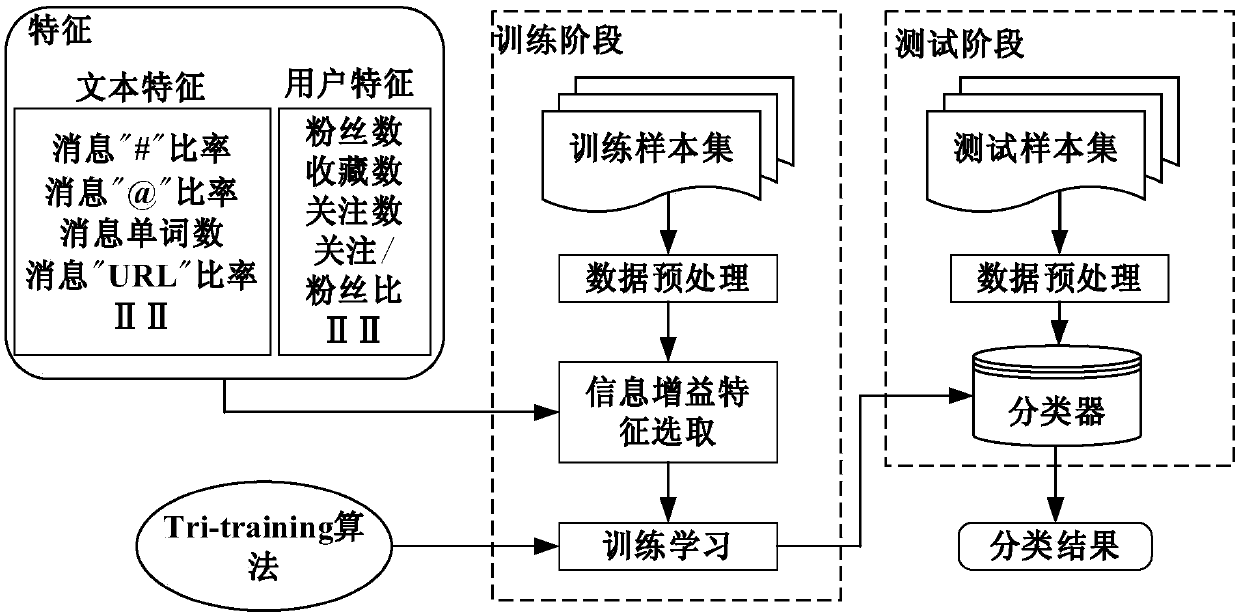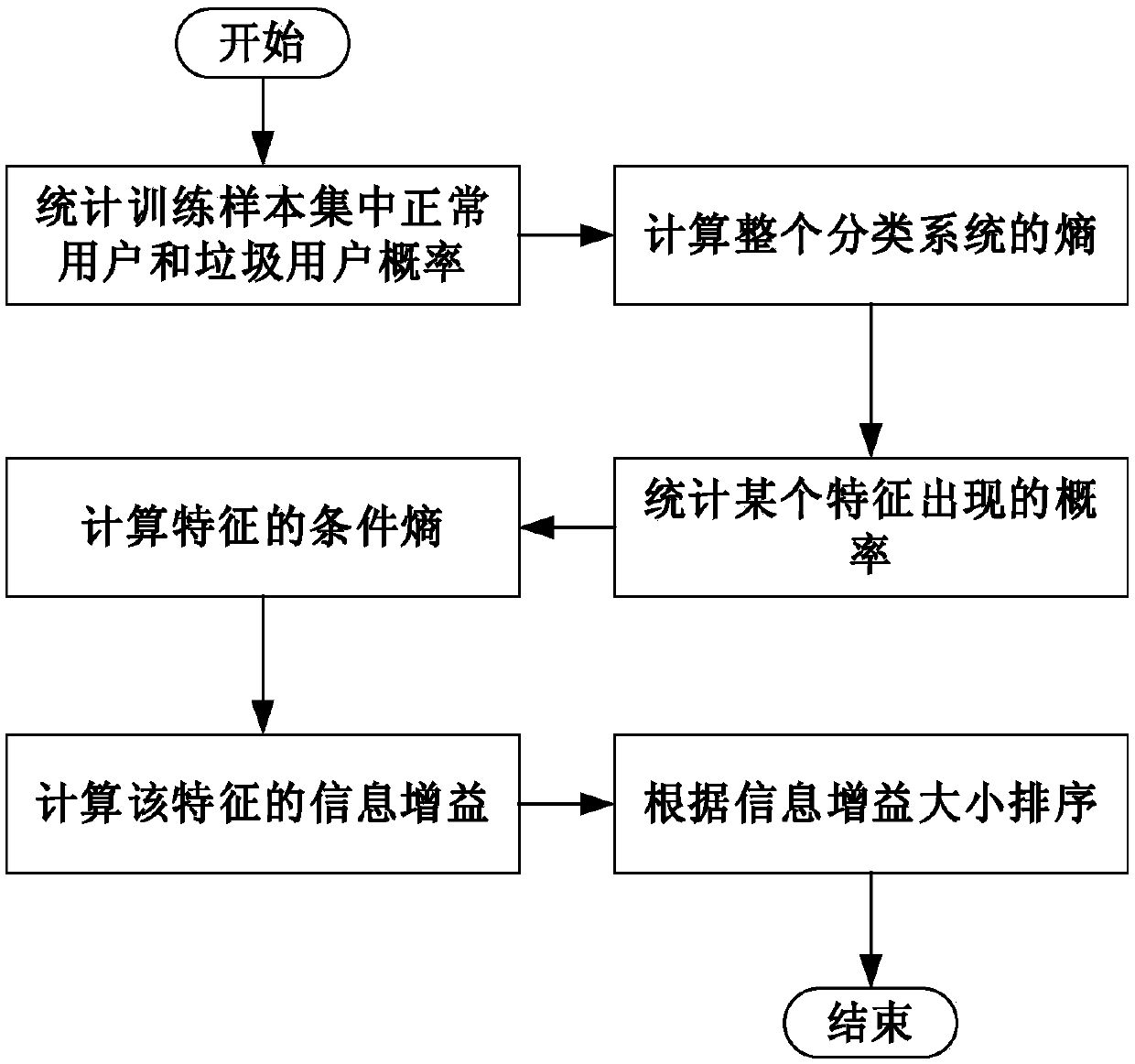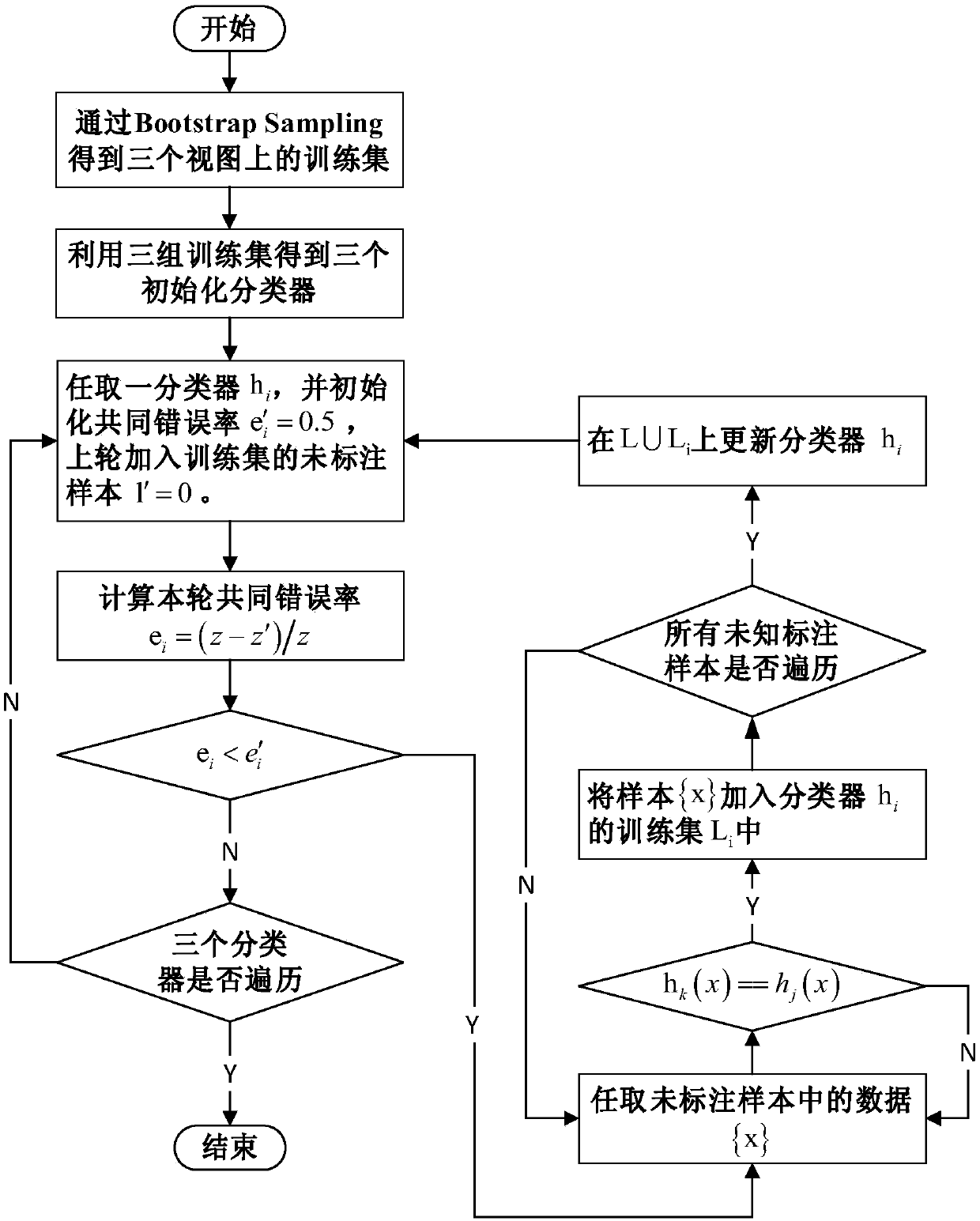A method of filtering spam users in social network based on semi-supervised learning
A semi-supervised learning and social networking technology, applied in network data retrieval, network data indexing, data processing applications, etc., can solve the problems of time-consuming and laborious, labeling bottlenecks, etc., to solve labeling bottlenecks, improve accuracy, and satisfy conditions independently effect of sexual demands
- Summary
- Abstract
- Description
- Claims
- Application Information
AI Technical Summary
Problems solved by technology
Method used
Image
Examples
Embodiment Construction
[0035]Embodiments of the present invention are described in detail below, examples of which are shown in the accompanying drawings, wherein the same or similar reference numerals represent the same or similar meanings throughout. The embodiments described below by referring to the figures are exemplary only for explaining the present invention and should not be construed as limiting the present invention.
[0036] figure 1 It is a schematic diagram of the overall process structure of the present invention. As shown in the figure, the present invention provides a method for filtering social network junk users based on semi-supervised learning. First, information gain feature selection is performed on the high-dimensional social network data; then the training sample set is used to train and learn by using the Tri-training algorithm to obtain the optimal classifier; finally, the performance of the classifier is evaluated by using the test sample set. The specific steps are as ...
PUM
 Login to View More
Login to View More Abstract
Description
Claims
Application Information
 Login to View More
Login to View More - R&D
- Intellectual Property
- Life Sciences
- Materials
- Tech Scout
- Unparalleled Data Quality
- Higher Quality Content
- 60% Fewer Hallucinations
Browse by: Latest US Patents, China's latest patents, Technical Efficacy Thesaurus, Application Domain, Technology Topic, Popular Technical Reports.
© 2025 PatSnap. All rights reserved.Legal|Privacy policy|Modern Slavery Act Transparency Statement|Sitemap|About US| Contact US: help@patsnap.com



